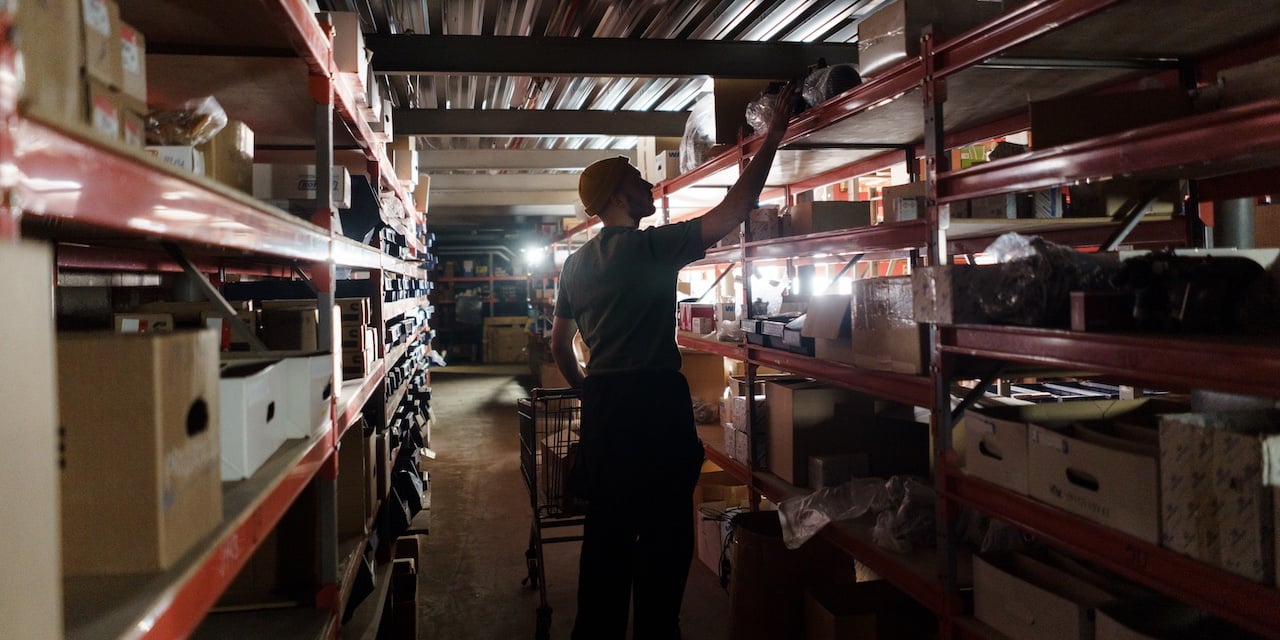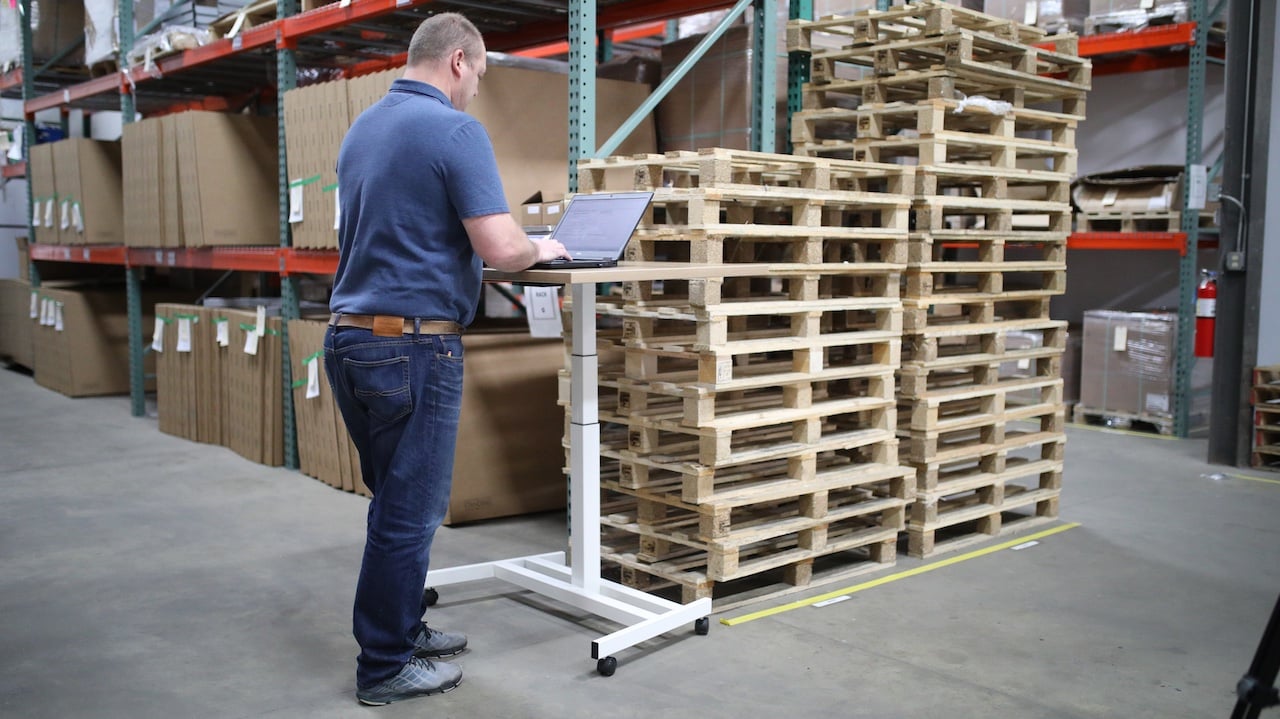In order to answer your request, we are obligated to process the data given above. Sometimes, however, we would like to use them for slightly different purposes, such as statistical data or informing you about our new products and services.We promise that we will use the given information for communication purposes only. We also remind you that you can unsubscribe from our mailing at any time (see Privacy Policy).
So, you've got your range of products, and you know your local market loves it. You want to win over new markets and think that an international expansion by becoming a cross-border eCommerce is the way to go.
Many crucial decisions lie ahead of you. One of them is the choice of the marketplaces you will use to help your products reach their customers. That is very important to consider since some of them offer their own fulfillment services but at least several others don't, nor do they serve fulfillment services in the areas your market research indicated you should enter with your products.
If you need a hand with your decision on which marketplaces suit your needs best, you could talk to a company specialized in servicing eCommerce platforms, like for example SellerSwitch.
Getting back to the topic, though, when and why is it beneficial to use on-site fulfillment services while selling abroad? Read along and learn.
When on-site fulfillment services are the best option for your eCommerce business
Many different factors make up the eCommerce business sales model: stocking up, ordering, shipping, and return handling. Each of them differs based on the approach you choose.

An on-site fulfillment company takes over a range of various business activities from you. The company you choose should handle: storage, packaging, shipping (also international shipments if needed), returns, complaints and accounting. The only activity that is dependant on you when it comes to physical supply chain process, is stocking up. It goes without saying that you save a lot of time with such ample support.
That's not all, though: in case of your sales increase, you don't need to hire more people, so hiring a fulfillment company helps you scale your business faster. Working with fulfillment companies lets you focus on other aspects of your business so that you can keep on growing.
Order fulfillment requires different skills. In order to maximize the potential for the retailer to do more with their resources, he suggests the company should consider delegating tasks that don't fall into its competence categories. That saves a lot of time and effort.
As mentioned in the introduction to this article, several significant marketplaces you might want to work with don't have their own fulfillment centers. If you choose them, you will need some help shipping products to your customers.
One of the things that made large marketplaces win with the smaller ones was the introduction of their own fulfillment. According to our best knowledge, you should try to emulate this approach as closely as possible while selling across borders. Companies like Linker Cloud can help you make that happen on the marketplaces that don't have their own fulfillment centers. All according to their mission: "To blur geographical boundaries in e-commerce and empower a focus on business growth".
But let's go back to on-site fulfillment - it has at least several other benefits I haven't mentioned yet; I list some of them below:
- If you want to sell internationally, the country in which people speak a completely foreign language might have the strongest demand for your products; in this case, the on-site fulfillment company will help you overcome any language barriers.
- It will also help you cope with the country's regulations and customs clearance (were required).
The benefits I mentioned above are already a lot, but there's more where that came from. It will be much easier to elaborate on why fulfillment centers are great for many businesses if we compare this solution to self-managed fulfillment.
Self-managed fulfillment vs fulfillment centers
Many businesses that have just started, want to manage as much as they can themselves. The feeling of being in complete control over various aspects of your business sure is tempting. However, this is not ideal while trying to set up your fulfillment processes.

First and foremost, if you think about taking on the fulfillment challenges by yourself, you need to rent a warehouse to store your articles. If you have the capacity to rent the warehouse in the country you want to start selling in - that's great; if not, you might have to cover the international shipping costs from your local warehouses, and they can be quite high. Direct international shipping might also raise the expenses and delivery times. In this scenario, on-site fulfillment center helps you save time and money.
Similar to getting help from a fulfillment company, you will have to stock up your warehouse or warehouses. That fact, coupled with managing the stock levels and your physical eCommerce store storage, will generate a need to hire more people; and that translates directly into rising costs.
On the other hand, having or renting your own warehouse abroad should make the shipping faster and gives you the feeling of control I mentioned earlier. By offering same-day delivery, you might raise customer satisfaction greatly. Still, the feeling of control might be illusory. Many self-managed warehouses are actually quite disorderly.
You should also consider that if you want to sell your products in several different locations, deciding to go with self-managed fulfillment can be quite a stretch. To offer swift delivery, you should rent or own a warehouse in each country you want to sell in. In the case of some large countries, it would be wise to rent or own several warehouses simultaneously! While outsourcing your order fulfillment, one company can take care of all the warehouses you store your products in different locations, wherever they might be: from Europe to Asia or even Australia. You just need to carefully look for the fulfillment network that could help you with all the areas you want to sell in.
Unfortunately, renting a warehouse is not everything. You will need to handle international orders and shipping yourself to sell in the other countries too. Of course, this is way too much for one person, so you would probably need to hire people to do that for you. Will they really be less expensive than getting help from an on-site fulfillment company?
To sum everything up, managing fulfillment by yourself might be really demanding. You need a warehouse (or warehouses); to consider shipping options; stock up, and manage stock levels yourself. What you get is the speed that should make some international customers happy and a feeling of control, which, in the end, might prove illusory.
Mix the options up to optimize the shipping costs
Another approach to international sales is to mix the models up. Some eCommerce companies do it successfully.
One of the verified methods is to manage fulfillment yourself for the smaller products and use the help of a local fulfillment center with the more demanding ones. This way, you can get the best of both worlds: have a feeling of control, speed things up where needed and delegate a significant part of the workload to a specialized company.
An excellent example of this would be the outsourcing of fulfillment services for non-standard products such as garden furniture, sports equipment etc., which are difficult to stock as well as further shipping and delivery (especially when thinking about international expansion).
In the end of the day, you need to decide which sales models allow you to have affordable shipping and meet customer expectations. A lot might depend on the product category you sell, though, so the solutions that work for other companies might not be well suited for you.
A summary: finding the best approach for you to reach the most beneficial international shipping model and international customers' delight
Remember that the end-game here, as with every business, is to make your customers fully satisfied. You should ladd your marketing strategy into the mix while considering the best approach to selling internationally. Your marketing plan should contain different segments and personas based on their characteristics. Thanks to that data, you can get closer to understanding your customers' behavior and preferences better and based on that, provide them with the service they wish to receive.
Moreover, it is crucial to consider whether the marketplace you chose has its own fulfillment or not and how you want to handle things. If you are OK with delegating tasks outside of your company, it seems that the help of on-site fulfillment companies is the way to go. If you want to retain more control, you should consider engaging in self-managed fulfillment.
There is also an approach that mixes both the sales models. In this model, you fulfill some orders with an on-site fulfillment, and in some other cases, you manage the fulfillment by yourself. You can mix it up to optimize shipping rates, other expenses, and your customers' happiness.






